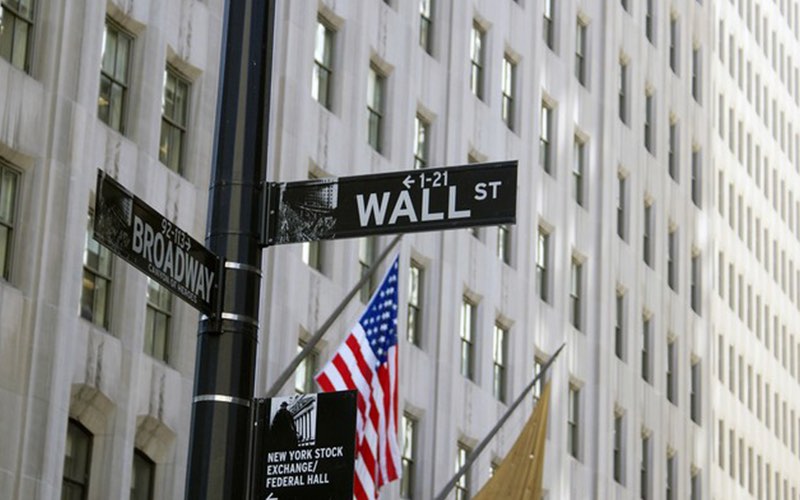The Federal Reserve's late-night decision has set the world on fire! Two key figures defected, leaving Powell facing his biggest crisis of his tenure.
2025-07-31 08:58:20

Inside the Historic Split Vote
In the nearly three decades of the Federal Reserve's policymaking history, it's rare for two governors to simultaneously dissent. This time, however, the two individuals who broke with tradition were two prominent appointees from the Trump administration: the hawkish Governor Christopher Waller and Vice Chairman for Supervision Michelle Bowman. According to insiders, these two "Trump legacies" strongly advocated for an immediate 25 basis point rate cut in a closed-door meeting. Their stance subtly echoed Trump's recent campaign rally accusations that "Federal Reserve policies are stifling the economy."
It is interesting to note that Waller, considered a leading candidate for the next Federal Reserve Chair, has publicly disagreed with current Chairman Powell. Several Wall Street traders privately stated that this rare public disagreement may indicate that the battle for the Fed leadership in 2026 has begun early.
The hidden meaning of the policy statement
A close reading of this meticulously crafted statement reveals several key foreshadowings by Fed economists. The statement acknowledged for the first time that economic growth slowed in the first half of the year, a subtle phrase highlighted by JPMorgan analysts. In typical Fed rhetoric, this effectively opens a theoretical window for future interest rate cuts. However, the subsequent statement that "uncertainty remains elevated" quickly dampened market enthusiasm. This classic Fed balancing act has left bond market traders navigating a murky landscape.
[Late-night debate between agency chiefs]
Nathan Thooft, chief investment officer of Manulife Investment Management, held a client conference call overnight, in which he emphasized: "The two opponents are like canaries in a coal mine. Although the current policy path remains unchanged, the floodgates for interest rate cuts have been loosened." His team predicts that there will be one or two interest rate cuts before the end of the year, and another 50 basis points cut in 2025.
JP Powers, COO of RWA Wealth Partners, noted a more nuanced political dynamic: "Powell is playing with fire, trying to maintain policy consistency while appeasing an increasingly divided committee. The Jackson Hole symposium in August could be a key stage for a policy shift."
Christopher Hodge, chief economist at Natixis, has a more unique perspective: "This is essentially a gamble on the timeline of tariff policy. Waller is betting that the trade war will end soon, while the majority believes that uncertainty will persist. If third-quarter GDP confirms that the economy is stalling, Powell may be forced to reverse course."
[Undercurrent policy puzzle]
A deeper analysis of the various positions reveals that the Federal Reserve faces a triple dilemma: it must manage a potential economic slowdown, remain vigilant against the inflationary backlash from the "Big, Beautiful" bill, and maintain political neutrality in a presidential election year. Allspring's global investment team estimates that the new fiscal stimulus bill could boost GDP by 1 percentage point in its first year, but the effects of this "fiscal stimulant" are rapidly fading.
Tony Welch, chief investment officer of SignatureFD, pointed out a key detail: "The addition of the term 'slowing economic activity' in the statement is by no means accidental. This is equivalent to the first time the Fed has officially acknowledged that there is something wrong with the economic engine." Ron Piccinini, head of investment research at Amplify, reminded that 98% of the futures market's expectations have already digested this resolution, and the real storm may come when the September interest rate dot plot is released.
Federal Reserve Chairman Powell faces the most complex balancing act of his career: guarding against the risk of a hard landing while avoiding being drawn into the political maelstrom of the general election. The "rebellion" of Waller and Bowman may be just the first chapter in a major global central bank reshuffle from 2024 to 2026. The market will closely monitor the August non-farm payroll data and the Jackson Hole annual symposium; any signs of trouble could trigger a new round of asset price revaluations.
- Risk Warning and Disclaimer
- The market involves risk, and trading may not be suitable for all investors. This article is for reference only and does not constitute personal investment advice, nor does it take into account certain users’ specific investment objectives, financial situation, or other needs. Any investment decisions made based on this information are at your own risk.





















